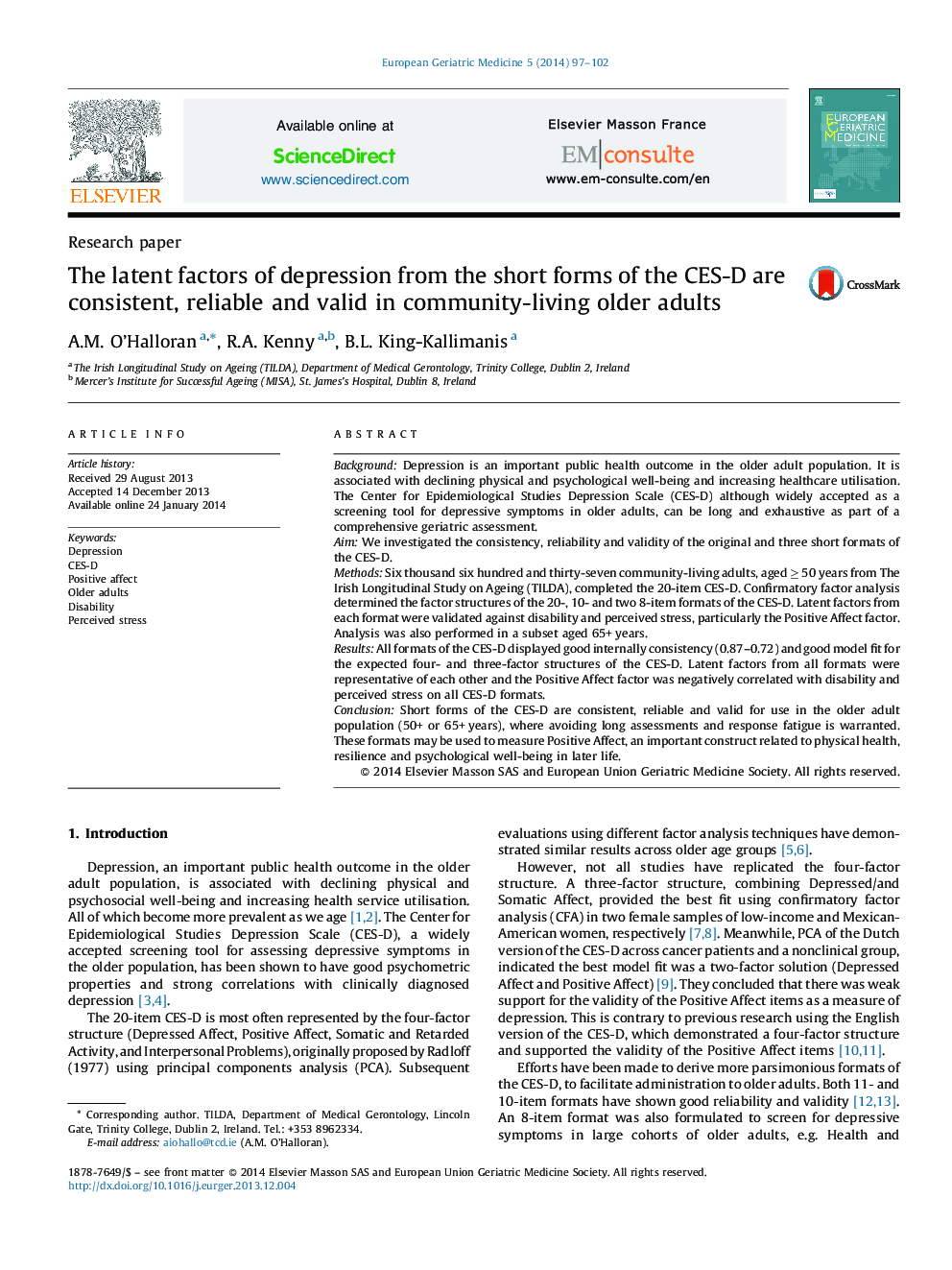| کد مقاله | کد نشریه | سال انتشار | مقاله انگلیسی | نسخه تمام متن |
|---|---|---|---|---|
| 3324294 | 1211960 | 2014 | 6 صفحه PDF | دانلود رایگان |

BackgroundDepression is an important public health outcome in the older adult population. It is associated with declining physical and psychological well-being and increasing healthcare utilisation. The Center for Epidemiological Studies Depression Scale (CES-D) although widely accepted as a screening tool for depressive symptoms in older adults, can be long and exhaustive as part of a comprehensive geriatric assessment.AimWe investigated the consistency, reliability and validity of the original and three short formats of the CES-D.MethodsSix thousand six hundred and thirty-seven community-living adults, aged ≥ 50 years from The Irish Longitudinal Study on Ageing (TILDA), completed the 20-item CES-D. Confirmatory factor analysis determined the factor structures of the 20-, 10- and two 8-item formats of the CES-D. Latent factors from each format were validated against disability and perceived stress, particularly the Positive Affect factor. Analysis was also performed in a subset aged 65+ years.ResultsAll formats of the CES-D displayed good internally consistency (0.87–0.72) and good model fit for the expected four- and three-factor structures of the CES-D. Latent factors from all formats were representative of each other and the Positive Affect factor was negatively correlated with disability and perceived stress on all CES-D formats.ConclusionShort forms of the CES-D are consistent, reliable and valid for use in the older adult population (50+ or 65+ years), where avoiding long assessments and response fatigue is warranted. These formats may be used to measure Positive Affect, an important construct related to physical health, resilience and psychological well-being in later life.
Journal: European Geriatric Medicine - Volume 5, Issue 2, April 2014, Pages 97–102